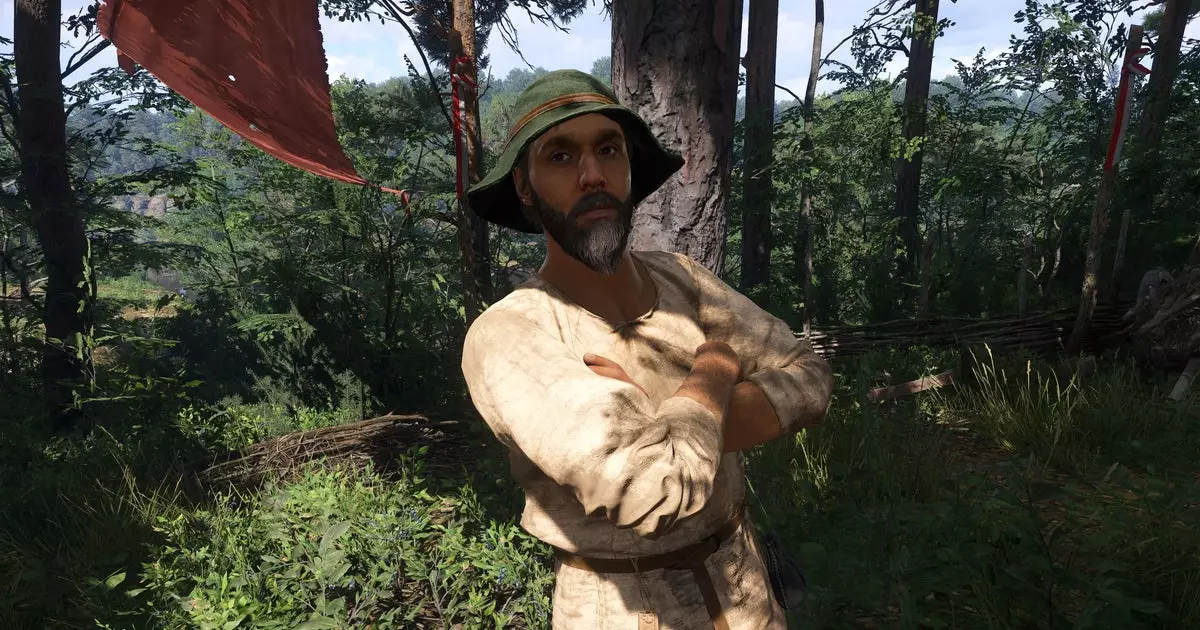What would you do if fate opened an avenue of limitless choices? The concept of an infinite shoe, while whimsical, taps into a deeper curiosity inherent within gamers: the desire for flexibility amid structured gameplay. Within the realm of role-playing games (RPGs), the balance between realism and accessibility frequently becomes a focal point for player engagement. When developing a character in a game like “Kingdom Come: Deliverance II,” players often confront the dichotomy between challenge and convenience. Should one embrace the struggle of managing gear durability, or would it be more alluring to glide through the game without such burdens?
The insights drawn from modding communities frequently highlight this tension. Players’ inclinations are often toward modifications that ease frustrations rather than enhance the game’s core experience. Take, for instance, the trend for mods that deliver infinite saving or enable instant herb collection. These adaptations provide shortcuts that streamline gameplay – something many may not have anticipated when navigating the intricate, authentic medieval landscapes the developers painstakingly designed.
Realism in gaming serves a dual purpose; it can deepen immersion, but it can also catalyze dissatisfaction. Players appreciate realism in theory, but the laboriousness involved in constantly managing the minute details can detract from enjoyment. The crux of the issue lies in the expectation that players will savor the ‘frictive minutiae’ of their gaming experience. Yet, the popularity of mods that minimize these challenges underscores a palpable dissonance between what games are perceived to be and what players truly desire.
For instance, when players opt for mods that enhance inventory capacity or extend shoe durability, they reveal a collective yearning for less tedious interactions. Why grapple with shoe repair mechanics when the essence of the game lies in adventure and exploration? The inclination to eliminate such frustrations speaks volumes about modern gaming preferences – players crave immersion but do not want to be sidelined by an endless stream of minutiae that detracts from the narrative experience.
Examine the humor embedded in an infinite shoe mod. The absurdity of it collides beautifully with the serious tone of the medieval setting. This module serves as both a playful commentary on the game’s approach to player experience and a reflection of broader gaming culture. It subtly allows players to engage with the environment without the worry of mundane logistics. The focus shifts from surviving the game’s challenges to reveling in its adventures, all while donning tragedy-free footgear.
This transition opens a dialogue about player autonomy. Are mods merely concessions to player demands, or can they be considered an essential expansion of a game’s universe? To explore this notion, imagine a quest where Henry encounters a mythical Infinite Cobbler. The narrative twist could serve as a tongue-in-cheek nod to the very desires that propelled players into the realm of modding.
While the modding community for “Kingdom Come: Deliverance II” might not rival the bustling activity seen in titles such as “Skyrim,” it still functions as a microcosm of modern gaming. Previous iterations like the “Cuman War mod” and “Architect mod” depict a fledgling desire to expand the playable boundaries beyond initial gameplay. The general absence of large-scale quest mods demonstrates the constraints set by available modding tools but also hints at a simmering interest from gamers to carve out their narratives within beloved gaming worlds.
Moreover, the contrasting experiences between a high-fidelity game and a diverse mod toolkit illuminate an important point about player investment. The allure of a meticulously crafted world is contrasted by the constraints of gameplay design, echoing the call for more dynamic storytelling opportunities.
The journey through infinite possibilities in gaming continues to unfold, heavily influenced by player agency and creativity. The paradox of pursuing realism intermingled with mod-driven freedom encapsulates the evolving landscape of modern RPGs. With a whimsical twist on infinite shoes serving as a humorous focal point, it reveals not just the players’ desires but offers a profound commentary on the very essence of gaming experiences.

